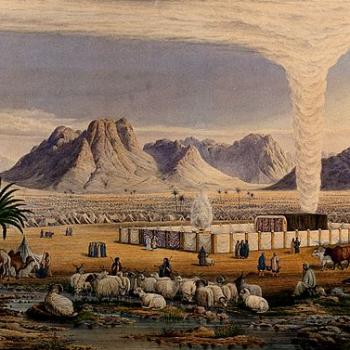The birth of Jesus of Nazareth marked a seismic shift in history. In the flurry of the business and busyness of the Christmas season, this is so easy to forget. The holidays are, for so many people, nostalgic, warm, and inviting times. We give and we receive. Traditions, old and fresh, abound. Family, friends, and food fill our itineraries. The drama of the manger, the virgin birth, the Magi journey, and the visit of the shepherds lie comfortably and perhaps invisibly in the background of our holiday experience, like a forgotten nativity scene.
In the season of Advent, it's good to stop once in awhile and reflect on the meaning of the birth of Jesus. It may be glaringly obvious that every birth alters history. This Spring, my wife and I welcomed our first child into the world. Ella changed our lives forever. Every day she brings us joy, laughter, and newness. Ours is just one instance of a commonly shared experience. Given the wonderful changes that new life brings, it makes sense that God would see fit to change the course of history and the world through a miraculous birth. But the birth of Jesus the Christ is not just quantitatively different from other births—it is qualitatively different. This is what makes the incarnation advent.
Theologian Jürgen Moltmann, in The Coming of God, wrote of the distinction between two ways of conceiving of history and time: futurum and adventus. Futurum is the "normal" way we understand and anticipate the flow of history. In the flowing stream of time, the present drops into the past while the future becomes the present. All that the future will be is determined by the potentialities and possibilities latent in the present. The present (and thereby the future) is a closed system of cause and effect. Of course, viewing history in this way can be depressing, to say the least. If we reflect for a moment on the seemingly never-ending cycles of war and peace, prosperity and difficulty, horror and happiness, we can't imagine anything breaking the cycle. Why should we expect global poverty to be eradicated, the immigration crisis to be resolved, our economic situation to improve, wars to cease? On what basis should we expect the cycle to end?
Adventus, on the other hand, is the biblical conception of history and time as an irruption of God, from his eschatological vantage point, into the present. Rather than the future being determined only by what we have come to expect from the past, the present is filled with hope through the unexpected occurrences of God's miraculous action. The character and agency of God transforms the meaning of the present and fills even the direst circumstances with hope. Adventus, Moltmann points out, is a translation of the Greek parousia, which means "the coming of persons" or "presence." Parousia hope is the anticipation of "Christ's coming presence in glory" (p. 25). The promise of Christ's return is founded on the memory of the birth of Jesus of Nazareth. The Christ who was born in Bethlehem and who fulfilled the promises of God, will come again and will be fully present to the world.
The adventus/futurum distinction shines a conceptual light on the meaning of Christmas. In first-century Palestine, God entered into human history from a standpoint outside of its apparently closed causal relations and transformed it from within. God became a man, a single individual human being (Kierkegaard's "absolute paradox"), and stretched hope like a blanket across the expanse of time and history. The past took on new meaning and the future acquired an inexplicable hope. But the meaning of Christmas is not fully contained in the birth of Jesus; it extends to the cross and resurrection. Advent hope is what happens when Christmas and Easter are irreversibly linked.
Far beyond the sentimentalities of the holiday, Christmas means that the very ebb and flow of history has been altered. The closed cycle of cause and effect has been disrupted by a miracle. God's promises are true and trustworthy. Our problems—the world's problems—do not ultimately define us or determine history. Rather, we are defined and determined by the Creator who became the created, by the Lord who became the servant, and by a future that became the present, pointing the way to our final home: a new heaven and a new earth, in which God will be all in all.
Adventus. Expectation. Anticipation. It seems necessary, in closing, to acknowledge that Christians have awaited the return of Jesus for thousands of years. And still we wait. If the flow of history were only futurum (normal time) we might be tempted to give up and look for another messiah or another source of hope. But the incarnation and the resurrection teach us that history in God's time, in his economy, is adventus. So with the Spirit of Christ, which he gifted at Pentecost, we expect the arrival of a new epoch when justice will "roll on like a river, righteousness like a never-failing stream" (Amos 4:8).
12/21/2010 5:00:00 AM





